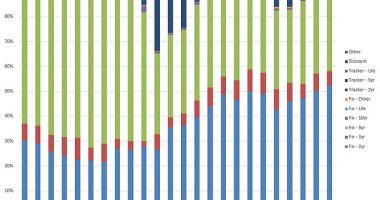
Mobile phone users are being urged to check their contract before jetting off abroad – as some networks charge almost £7 a day for certain countries.
Last week, industry regulator Ofcom called for new powers to force networks to text customers about roaming fees. But the rules are not expected to be introduced until next year.
As it stands, mobile phone companies are not obliged to warn customers of the extortionate fees they could rack up while on holiday.
One in five people has no idea what they pay, according to the regulator.
Costly roaming charges in the EU ended in June 2017, allowing tourists to use their mobile phones on holiday without extra costs. But UK customers are no longer entitled to this right since Brexit.


Life’s a beach: As it stands, mobile phone companies are not obliged to warn customers of the extortionate fees they could rack up while on holiday
Provider O2 is now the only network that does not levy roaming charges in Europe for any contract taken out recently.
However, most networks have continued to provide free roaming in the EU, as well as Norway, Iceland, Liechtenstein and in some cases Switzerland, for those who stick with old contracts – typically those taken out between July and October 2021.
For more recent contracts, EE, Vodafone and Three have all reintroduced roaming charges – demanding £2.29, £2.25 and £2 a day respectively.
Outside Europe some providers levy an even higher roaming charge on top of the daily bill. Vodafone charges an extra £6.85 for every day in countries outside Europe and Three £5 per day – while O2 demands £6 a day.
Britons abroad have paid an estimated £539 million in unexpected roaming charges over the past year, according to price comparison website Uswitch.
Ernest Doku, mobile expert at Uswitch, says: ‘Given how confusing policies and plans can be, it is right Ofcom is taking the issue seriously. But customers should not have to wait – so the regulator should act now.’
To avoid a nasty surprise bill, Doku says it is important to read the small print of your contract to find charges for calls and data usage abroad.
He suggests taking advantage of free wi-fi spots in hotels and cafes – as long as they are secure – to reduce mobile data usage. If you’re happy to rely on these, ensure the data roaming option in the settings is switched off to avoid unexpected charges.
And while you may pay to receive calls, you never pay to receive text messages, so encourage friends to send these. Or simply put your phone in flight mode if you are not using it.
Cristina Luna-Esteban, of Ofcom, says: ‘Millions of holidaymakers heading abroad want to stay connected.
‘But without clear information from their provider they face unexpected bills for calling home or going online.
‘Alerts would mean they would not be left in the dark on charges.’








